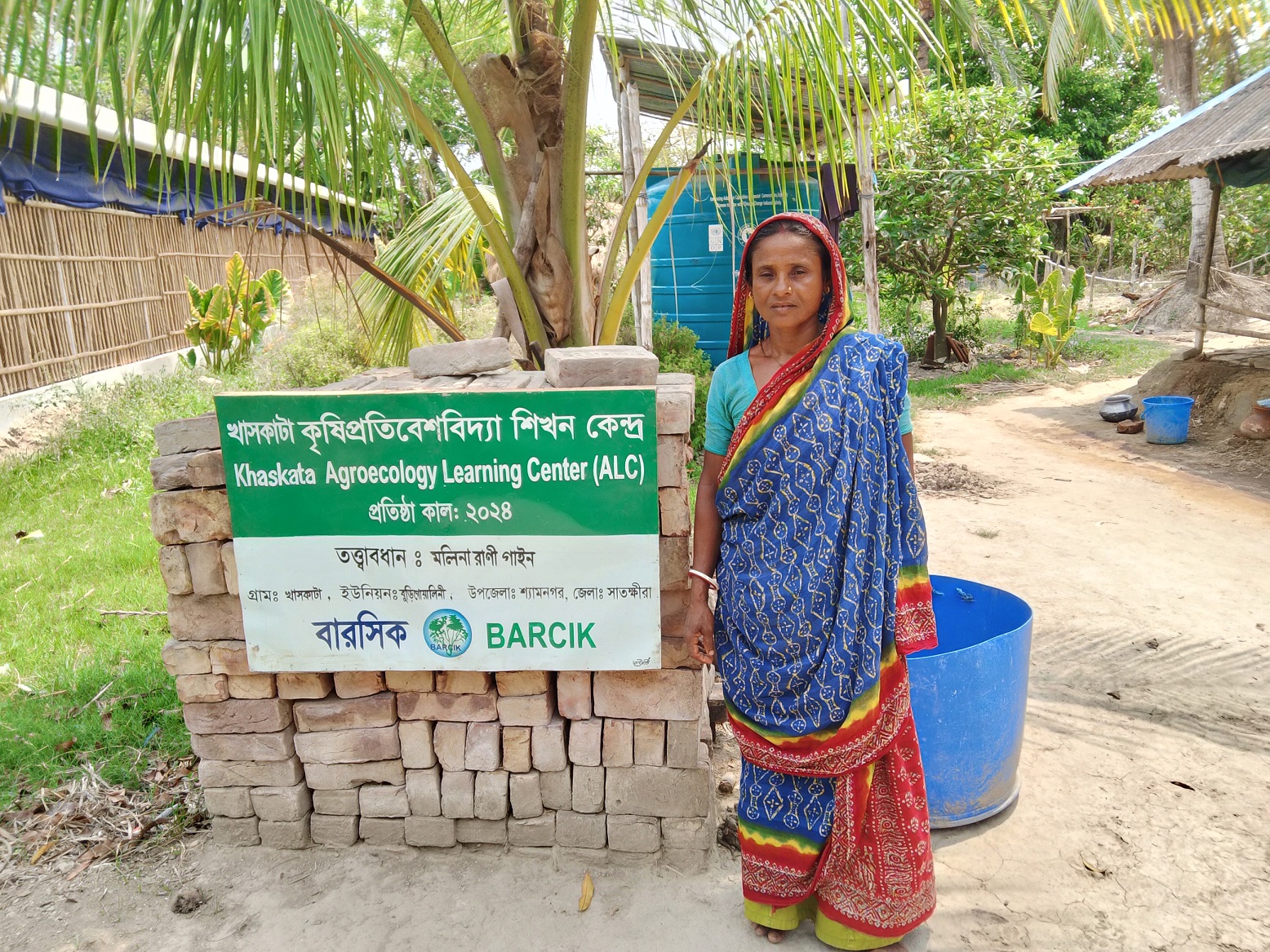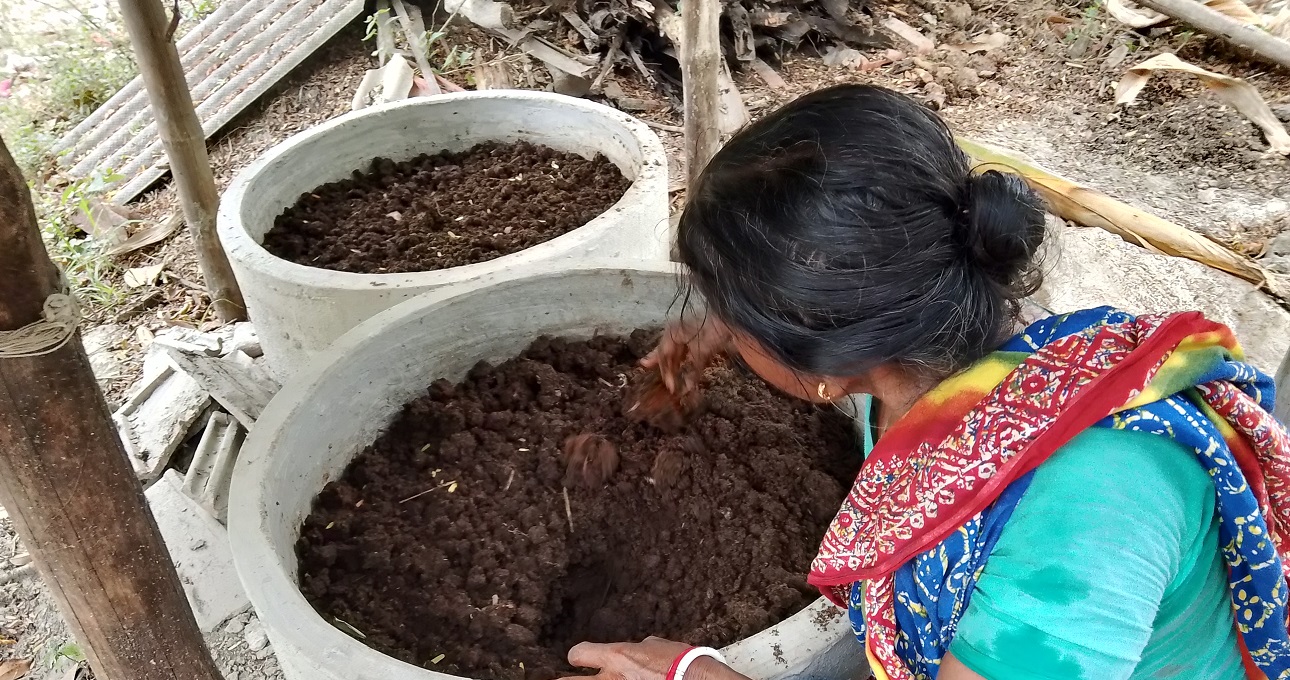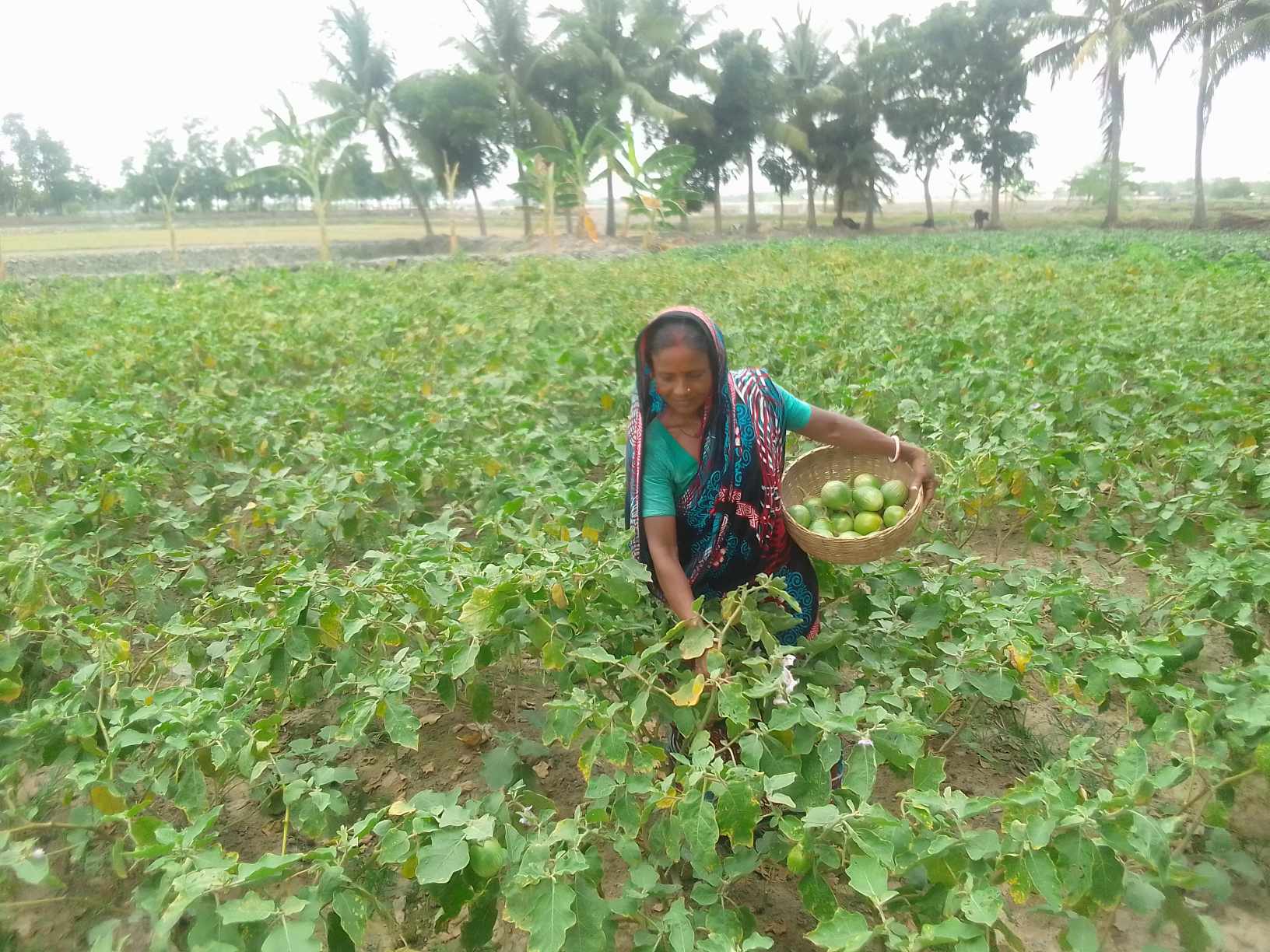By Monika Paik, from Shyamnagar, Satkhira
Khasakata village in Burigoalini Union of Shyamnagar upazila, Satkhira district, is located in Bangladesh’s southwest coastal belt. Due to climate change and human-induced activities such as unplanned shrimp farming, river erosion, and environmentally destructive practices, the region faces waterlogging, salinity intrusion, and multiple ecological crises. Amid these challenges, a determined rural woman named, Molina Gain (43), continues practicing agroecology as part of local climate adaptation.

She lives with her husband and one son. Although her family owns farmland, both husband and wife work tirelessly every day to transform their homestead into a learning hub for agroecological practices.
In 2024, with support from BARCIK, Molina established this center to sustain humans, animals, and nature in harmony. On her 1.5 bighas of land, she cultivates vegetables while utilizing every inch of her homestead. She practices sack gardening, boundary planting, and tower methods. Her yard is enriched with mango, blackberry, jackfruit, coconut, timber trees, fruit trees, uncultivated wild plants, and medicinal species. On the remaining land, she grows rice for household consumption and preserves indigenous fish species in her pond.

Using vermicompost fertilizer, she grows brinjal, pumpkin, bottle gourd, ridge gourd, sponge gourd, and many other vegetables year-round. With support from BARCIK in 2024, she received materials to produce vermicompost. Molina said, “After using vermicompost, pest attacks on my crops reduced, and production nearly doubled.” She went on saying, “Earlier, I faced huge financial losses in brinjal farming, but after learning vermicompost preparation and receiving training from BARCIK, I gained knowledge and confidence. Now I have created a platform for experience-sharing, which is strengthening mutual relationships.”
She has also established a small seed bank by conserving diverse local seeds and storing dry foods for emergencies. Neighbors and outsiders regularly benefit from this seed bank throughout the year, and during times of crisis, she plays an important role in addressing seed crises.

Additionally, she rears livestock, ducks, and chickens, ensuring her family’s nutrition. She sells milk and eggs and earns cash by selling cattle every year.
Through women’s active participation, Molina Gain’s Agroecology Learning Center has become a focal point for sharing and practicing indigenous knowledge in the coastal region. Her agroecological initiatives contribute to biodiversity conservation while enhancing economic sustainability.
